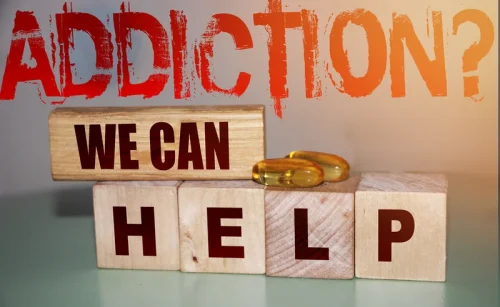
Interestingly, central neuroinflammation is maintained after cessation of alcohol consumption, compared to peripheral activation [114] and during periods of abstinence [108]. Finally, in relation to the effect of alcohol on neuroinflammation, a study by Lowe et al. showed an attenuation of alcohol-induced neuroinflammation after reducing the gut bacterial load, as a result of antibiotic treatment [115]. We could hypothesize that by reducing the gut bacterial load, lower amounts of bacterial components would reach the systemic circulation, leading to reduced activation of pro-inflammatory components.

What Are the Immediate and Long-Term Health Benefits After You Stop Drinking Alcohol?
Past data shows binge drinking can have a massive effect on the immune system. Similarly, alcohol can trigger inflammation in the gut and destroy the microorganisms that live in the intestine and maintain immune system health. “Excessive alcohol consumption can cause nerve damage and irreversible forms of dementia,” Dr. Sengupta warns. The morning after a night of over-imbibing can cause some temporary effects on your brain. Things like trouble concentration, slow reflexes and sensitivity to bright lights and loud sounds are standard signs of a hangover, and evidence of alcohol’s effects on your brain.

Can alcohol make inflammation worse?

Prolonged exposure of Mono Mac 6 cell line to 25mM, 50mM and 75mM ethanol for 7 days also reverses the initial inhibition of LPS or PMA-induced TNF-α production in a dose-dependent manner (Zhang, Bagby et al. 2001). Heavy drinking and chronic alcohol use can significantly impact the immune system and decrease immune function. The body constantly is exposed to pathogens that penetrate either our external surface (i.e., the skin), through wounds or burns, or the internal surfaces (i.e., epithelia) lining the respiratory and gastrointestinal (GI) tracts. The first line of defense is called the innate immunity;1 it exists from birth, before the body is even exposed to a pathogen.
The Gastrointestinal Microbiome: Alcohol Effects on the Composition of Intestinal Microbiota
TLR4-deficient mice prevented such neuroinflammation, synaptic and myelin alterations, as well as long-term cognitive alterations [105]. Principal signaling pathway and molecules involved in the communication microbiota/gut to the brain and liver. Gut microbiota can signal to the brain and liver through multiple direct and indirect mechanisms. Microbiota produces neurotransmitters, tryptophan metabolites, fermentation metabolic can alcohol weaken your immune system by-products such as short-chain fatty acids (SCFAs), the release of cytokines by immune cells and gut hormone signaling. Some of these molecules can activate the vagus nerve or reach the brain and liver via systemic circulation. Alcohol consumption causes dysregulation in the intestinal microbiota, which leads to an alteration in this communication and subsequently causes alterations in brain and liver functions.
Watch: Why babies can’t drink water
- Still, the evidence is more robust for considering how much you’re drinking, rather than what you’re drinking.
- As with most things in life, the arrow points to “moderation” (unless you are in a high-risk group due to poor health or pregnancy).
- People can develop a lung abscess when bacteria from the throat or mouth enter the lungs and create a pus-filled cavity surrounded by swollen tissue.
- Several lines of evidence suggest that alcohol consumption exerts a dose-dependent impact on the host response to infection.
Alcohol And Muscle Relaxers: 4 Things To Know About This Risky Combination
National Institute on Alcohol Abuse and Alcoholism (NIAAA)

- Unlike chronic alcohol consumption, binge drinking pattern (a frequent form of alcohol consumption, defined as 5 or more drinks for men and 4 or more drinks for women within 2 h) has not shown homogeneous results even using similar experimental designs.
- Similarly, consumption of 10% (w/v) ethanol in tap water ad libitum for 2 days in mice resulted in decreased bone marrow DC generation, decreased expression of CD80 and CD86, impaired induction of T cell proliferation, and a decrease in IL-12 production (Lau, Abe et al. 2006).
- If you’re still feeling ill within 15 minutes, you should seek medical care, Mularoni advised.
How Much Alcohol Is a Problem For Your Immunity?
- The World Health Organization (WHO) links about 8.1 percent of all tuberculosis cases worldwide to alcohol consumption.
- LPS (lipopolysaccharide), Gram-negative bacteria membrane main product, and other bacterial metabolites reach the liver via the portal vein where they are enabled to induce the activation of the inflammatory processes.
- In another study, adolescent mice that consumed ethanol intermittently (3 g/kg) for two weeks, showed that this consumption pattern leads to an activation of TLR4 signaling pathways, an up-regulation of cytokines and proinflammatory mediators, in addition to synaptic and myelin alterations.
- Alcohol use has also been shown to drive disease progression in chronic viral infections such as human immunodeficiency virus (HIV) (Baum, Rafie et al. 2010) and Hepatitis C (Bhattacharya and Shuhart 2003).

